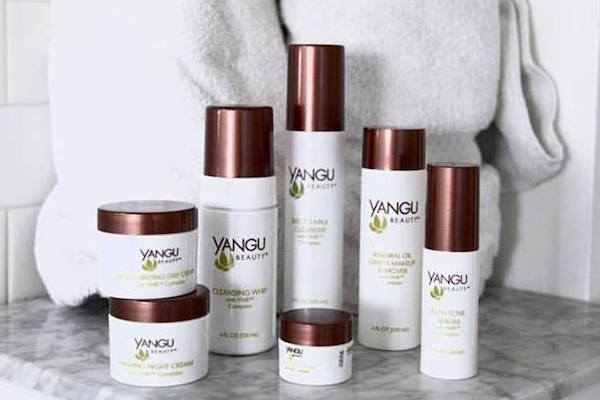There are so many benefits to becoming vegan. Veganism is the cutting of animal products from your diet and living completely on a plant-based diet. Veganism has become popular in recent years for a number of different reasons. Some choose to be vegan entirely because of the positive effects that it has for animals; animal rights activists often espouse veganism, as it doesn’t require the slaughter of animals for meat, but furthermore also eliminates the need for dairy and egg products. Many go further and endorse veganism due to its environmental benefits. As meat farms require a great deal of grazing land, and livestock can cause damage to the environment, veganism is theoretically more sustainable than an omnivorous lifestyle, which is hugely important in a world in which climate change is a major threat. Of course, some don’t care as much about the issues of animals or the environment, and instead wish to focus on the benefits that veganism offers their own personal health. Meat and dairy products are not always the best for our bodies, and dairy products in particular can trigger a number of intolerances in the body. Lots of people who suffer from inflammation-based conditions like to experiment with veganism or a plant-based diet because meat and dairy are known to trigger inflammation.
With that being said, everyone’s body is different, and we do have basic needs that may not be met if you eat a vegan diet without seeking those nutrients elsewhere. Some find that veganism doesn’t suit all of their dietary needs and must seek supplements elsewhere in order to make it the ideal diet for them. Supplements are great resources for vegans, especially new vegans who are trying the diet out for the first time. Some find that they need more supplements than others, and as always it’s important to consult with your doctor about the issue before committing yourself to any specific supplements. But to get your research started, we’re listing some of the basic supplements that a lot of vegans find key to getting their diets on track. Taking these vitamins won’t make you less of a vegan; they just may make you healthier overall.
1. Vitamin D
You’ve probably heard of vitamin D before, but you may not know what it’s for. Essentially, vitamin D is responsible for absorbing the calcium and phosphorous that can be found in an individual’s gut. Your mood, muscle recovery abilities, immune system, and even your memory can be benefited by vitamin D. While typical children and adults should take about 600 IU of vitamin D per day, pregnant or lactating women are recommended to take 800 IU a day, as are elderly individuals. A number of different vitamins need to be boosted for the elderly, who generally experience a weakening of the immune system as they grow older, and pregnant or lactating women, whose vitamins are essentially being shared. The reason why not only vegans but essentially everyone should consider vitamin D is that it isn’t naturally found in many foods; furthermore, lots of foods that could be infused with vitamin D by manufacturers often aren’t. You can boost your vitamin D intake by spending more time in the sun, but it’s also recommended that those suffering from vitamin D deficiencies take supplements. After all, sunlight, unfortunately, isn’t always an option for all of us depending on where we live. In general, it’s a good idea to take this supplement if you’re switching to veganism.
2. Omega-3
To the surprise of some people researching supplements, there are actually two different types of omega-3 fatty acids. There are essential omega-3 fatty acids, which you can only get from your diet, not through any additional sources. Then there are long-chain omega-3 fatty acids, which is what we’re talking about here. They are hugely important for the strengthening of your eyes and brain, and have also been linked to reducing the risk of breast cancer, depression, inflammation, and attention deficit hyperactivity disorder. You may have heard of omega-3s before you took a big test in school; a lot of people connect them with intelligence and therefore greater academic performance, though this link may be a bit more tenuous. While you should theoretically be able to get long-chain omega-3s from the vegan foods that you consume containing essential omega-3s, this is not always the case. Some of the benefits that you get from long-chain omega-3s are more closely connected to foods like fish, which you would obviously cut as a vegan. Taking these supplements is especially important to people 50 years and older, even if they aren’t vegan. This supplement should be added to their daily regimen.
3. Iodine
Some don’t even realize that iodine is a part of a healthy diet, instead associating it with the product that is often packaged into first aid kits. But yes, iodine is something that you need to stay healthy. It’s actually key to a healthy, functioning thyroid, which in turn is a part of maintaining your metabolism. Ultimately, a lack of iodine can lead to hypothyroidism, which can cause fatigue, dry skin, forgetfulness, depression, and weight gain. Iodine is something that you’ll definitely want to consider when moving towards any kind of new diet, as changing your diet can dramatically affect your metabolism, if momentarily. The more iodine you have in your diet, the more you’re safeguarding yourself against any unexpected shifts. Keep in mind too that if you’re trying to supplement your diet with iodine naturally, you should aim for food grown near the ocean. This tends to have more iodine.
There is no reason why you should get worried and stop being vegan because you’re worried about missing out on what your body needs. As long as your doctor agrees, you should be able to move forward with supplements and commit to being vegan wholeheartedly.




